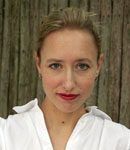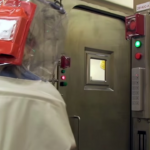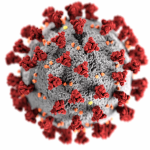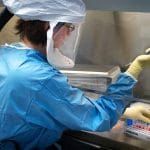The Crispr pioneers
By Elisabeth Eaves | December 19, 2016

Time may have named Donald Trump the “person of the year,” but the magazine’s short-list for the title includes a group of people who could very well have a bigger impact in the long run. They are the Crispr pioneers, the scientists pushing the boundaries of what can be done with a gene-editing technique discovered in 2012.
As staff writer Alice Park explains, “Crispr allows scientists to easily and inexpensively find and alter virtually any piece of DNA in any species.” She follows a scientist at the University of Pennsylvania, Carl June, who is about to launch a trial in which 18 cancer patients will become the first people in the world to be treated with Crispr-altered cells.
The array of things scientists are already doing with Crispr in research laboratories is mind-boggling, from snipping HIV from infected human cells to making progress on treatments for sickle-cell anemia and muscular dystrophy. As Park writes, “This is only the beginning of a kind of medicine that stands to effectively change the course of human history.”
But many scientists are also advocating extreme caution with the technology—because, well, it enables humans to alter human evolution. Crispr facilitates the development of gene drives, “which in theory allow scientists to permanently introduce a genetic alteration into an entire animal or plant population,” as Sonia Ben Ouagrham-Gormley and Kathleen M. Vogel explained in The Bulletin this fall.
Is anyone making sure that Crispr experiments don’t go off the rails? Sort of. For human trials in the United States, regulatory oversight is already in place, as it is for any new gene therapy. When it comes to altering food crops, though, the US Department of Agriculture has said that no new regulation is required. It’s not clear what body, if any, would have oversight of using Crispr on animals. Experts have expressed skepticism that the Biological Weapons Convention, which bans the development, production, and use of biological weapons worldwide, can be effective as a forum for debating new developments like Crispr. The Crispr pioneers are indeed pushing boundaries. The question is whether anyone is setting them.
Publication Name: Time
To read what we're reading, click here
Together, we make the world safer.
The Bulletin elevates expert voices above the noise. But as an independent nonprofit organization, our operations depend on the support of readers like you. Help us continue to deliver quality journalism that holds leaders accountable. Your support of our work at any level is important. In return, we promise our coverage will be understandable, influential, vigilant, solution-oriented, and fair-minded. Together we can make a difference.
Topics: Biosecurity, What We’re Reading














